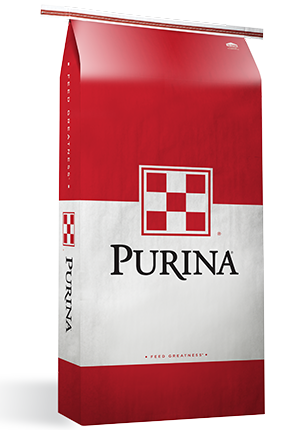
Take a Goldilocks Approach to Sheep Mineral Intake
Wellness : Health
Wellness : Nutrition

Just like Goldilocks, an important part of a successful sheep mineral program is balance. Too little intake, and your sheep won’t get the nutrients they need. Too much, and your cost of mineral fed starts to climb.
If you’re feeding a quality mineral and everything’s balanced as it should, performance can increase with better feed efficiency, fertility enhances from higher kid crops and health outcomes can improve. On the flip side, when a quality mineral isn’t present, conception rates drop, hoof problems pickup and performance can fall.
Get just the right amount of mineral consumption with these tips:
Feeding mineral year-round is cost-saving because sheep don’t have to play catch up. Every time the mineral feeder is empty, they’re trying to balance themselves. But when there is mineral already present, they won’t need to catch up.
A weatherized mineral can also further enhance mineral consumption.
Utilizing a weatherized mineral with larger particle sizes benefits consumption because the mineral won’t clump up when wet or blow away.
Calcium is especially important for sheep because having it at a high enough rate limits the risk of hypocalcemia and improves reproduction.
Additionally, it is crucial to have a mineral mix formulated specifically for sheep or goats because copper is toxic to sheep if fed at the requirements needed for goats.
It’s not uncommon in some pastures to see sheep only receiving a salt block. That won’t get the job done when you want to push for higher weaning rates and breeding percentages.
When salt is fed at too high of a level, sheep can become dehydrated or even stop grazing as actively. Rather than feeding a salt block or on its own from a bag, feed salt in a balanced mineral fortified with trace minerals and vitamins to meet your flock’s total nutrient requirements. And as a bonus, if you feed a quality mineral, like Purina® Sheep Mineral or Purina® Wind and Rain® Sheep Mineral, there is no need for additional salt.
Move mineral sites throughout the pasture during the grazing season to help the flock or herd move to underutilized areas of forage. Use your best judgment when moving mineral sites to get the optimum consumption of mineral and forages.
One important thing to remember is you don’t want mineral consumption to fall too low. If you move mineral sites too far from heavily trafficked areas like shade or water, consumption can fall.
Getting your sheep mineral program just right through year-round availability, balanced ingredients and consistent intake will go a long way to helping your flock perform.
Sign up for our e-tips program to get more sheep nutrition and feeding information.
If you’re feeding a quality mineral and everything’s balanced as it should, performance can increase with better feed efficiency, fertility enhances from higher kid crops and health outcomes can improve. On the flip side, when a quality mineral isn’t present, conception rates drop, hoof problems pickup and performance can fall.
Get just the right amount of mineral consumption with these tips:
Consistency is key to drive intakes
A pivotal element to any sheep mineral program is providing vital nutrients your sheep might lack and having it available when they need it. Mineral consumption can fluctuate throughout the year based on forage quality, but there is never a point where sheep won’t need mineral. To ensure consistent intake, provide a balanced mineral year-round.Feeding mineral year-round is cost-saving because sheep don’t have to play catch up. Every time the mineral feeder is empty, they’re trying to balance themselves. But when there is mineral already present, they won’t need to catch up.
A weatherized mineral can also further enhance mineral consumption.
Utilizing a weatherized mineral with larger particle sizes benefits consumption because the mineral won’t clump up when wet or blow away.
Look for balanced nutrients
Quality minerals for sheep balance nutrients like calcium, cobalt, phosphorus, iodine, manganese, selenium and zinc. They all have a role in optimizing and maintaining performance.Calcium is especially important for sheep because having it at a high enough rate limits the risk of hypocalcemia and improves reproduction.
Additionally, it is crucial to have a mineral mix formulated specifically for sheep or goats because copper is toxic to sheep if fed at the requirements needed for goats.
Salt on its own won’t cut it
Sheep need salt. However, offering salt as the only mineral available to your flock won’t meet all their needs.It’s not uncommon in some pastures to see sheep only receiving a salt block. That won’t get the job done when you want to push for higher weaning rates and breeding percentages.
When salt is fed at too high of a level, sheep can become dehydrated or even stop grazing as actively. Rather than feeding a salt block or on its own from a bag, feed salt in a balanced mineral fortified with trace minerals and vitamins to meet your flock’s total nutrient requirements. And as a bonus, if you feed a quality mineral, like Purina® Sheep Mineral or Purina® Wind and Rain® Sheep Mineral, there is no need for additional salt.
Mineral site considerations
Mineral has additional advantages outside of providing nutrition to sheep. When placed strategically in a pasture, mineral can optimize how sheep graze.Move mineral sites throughout the pasture during the grazing season to help the flock or herd move to underutilized areas of forage. Use your best judgment when moving mineral sites to get the optimum consumption of mineral and forages.
One important thing to remember is you don’t want mineral consumption to fall too low. If you move mineral sites too far from heavily trafficked areas like shade or water, consumption can fall.
Getting your sheep mineral program just right through year-round availability, balanced ingredients and consistent intake will go a long way to helping your flock perform.
Sign up for our e-tips program to get more sheep nutrition and feeding information.



